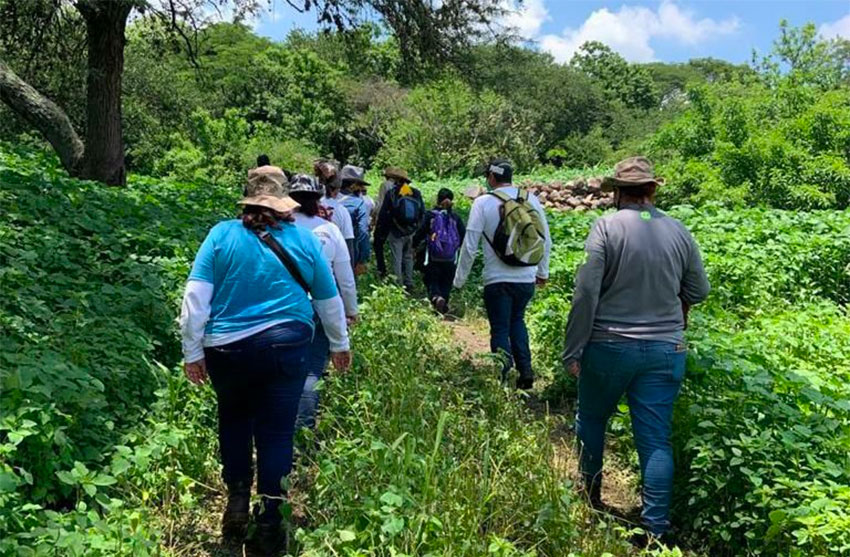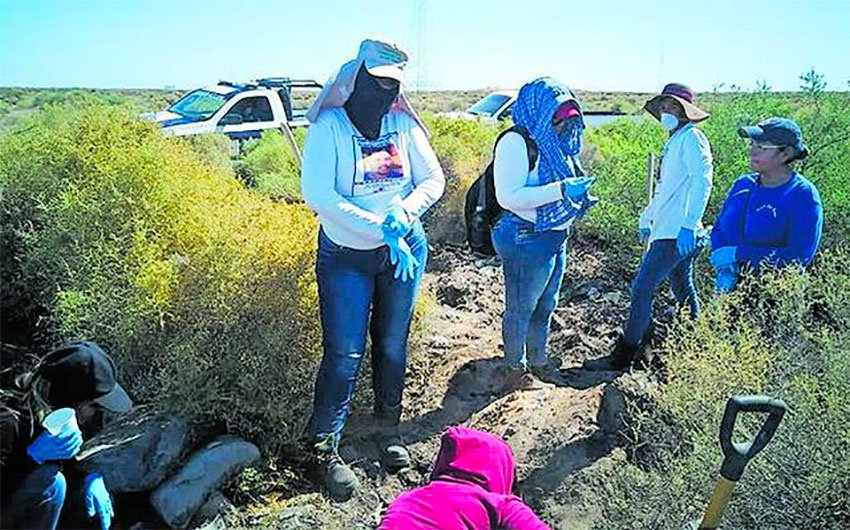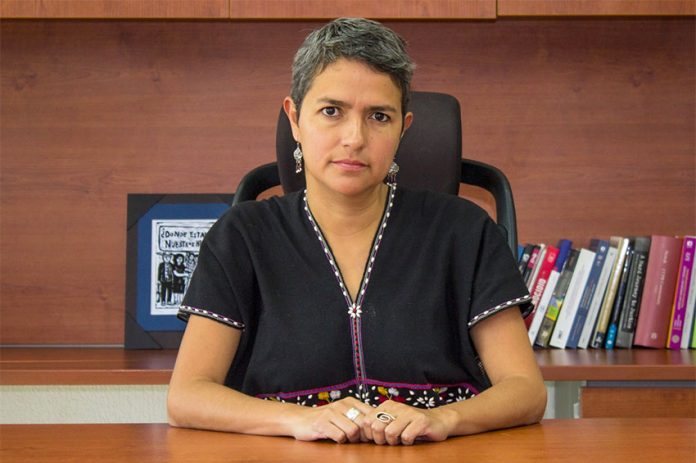Karla Quintana has a gargantuan and unenviable task: leading the search for more than 79,000 missing people, most of whom have disappeared since former president Felipe Calderón launched the so-called war on drugs in late 2006.
But despite the myriad challenges she faces, the National Search Commission (CNB) chief is determined to make progress and help bring justice to the countless family members tirelessly looking for their missing loved ones – even if it takes 10 or 20 years.
A report published Thursday by The Washington Post delves into the challenges Quintana is confronted with, looks at the context of Mexico’s missing persons crisis and paints a portrait of a woman intent on doing all she can to help lessen the pain of the many people who have never found out what happened to their disappeared sons, daughters, brothers, sisters, mothers and fathers.
A 41-year-old lawyer with a degree from Harvard, Quintana was appointed to the search commissioner role in February 2019, two months after President López Obrador came to power. The CNB was created at the tail end of the previous government’s 2012-2018 term and when Quintana took the reins it was severely underfunded.
One human rights activist said that she had taken on “the most impossible job in the country.”
Quintana was given a US $22-million budget to work with in her first year in the position, which the Post described as “significant but hardly enough,” explaining that in order to exhume and identify bodies buried in hidden graves – which are all too common in Mexico – she would have to rely on a corrupt and underfunded justice system.
However, Quintana “saw reasons for hope,” the Post said. Deputy Interior Minister Alejandro Encinas, a close ally of López Obrador, was her boss, and the president had promised to get to the bottom of Mexico’s most infamous recent missing persons case – that of the 43 students who were abducted and presumably murdered in Guerrero in 2014.
“Many people think human rights defenders should always be in opposition to the government,” she said. “I’d say there are moments in which it’s necessary — there is no other option – but to be in the government.”
Quintana knew that funding for the commission would not be boundless even though López Obrador had said “there is no budget limit, no financial ceiling” but she was nevertheless cautiously optimistic, stating: “For the first time, maybe in a limited manner, the state, as a state, is trying to give a response.”
Quintana’s appointment to head up the CNB, however, was not met with great enthusiasm by family members of missing persons – mainly mothers – who have been searching for their loved ones for months, years or decades with scant support from the authorities.
Silvia Ortiz, the leader of a group dedicated to searching for missing persons near the northern city of Torreón, Coahuila, is one such person.

“What if she’s the kind of woman who just sits behind a desk?” was her initial thought when she heard about Quintana’s appointment.
But the search commissioner dispelled that notion by joining Ortiz and others as they searched through graves uncovered in the desert outside Torreón, where a decade ago members of the Zetas cartel discarded their victims’ remains after dismembering and burning them.
While proving that she wasn’t averse to getting down to the nitty gritty of searching for missing persons, Quintana, the Post noted, fired questions at Ortiz and a state forensic expert.
How long had they been digging? Four years. How much help had they received from the government? Not much. How many bodies were in each grave? Up to 10 pounds of pebbles — around three humans.
Quintana has also accompanied on-the-ground search efforts in other locations including Guanajuato, currently Mexico’s most violent state.
Back at CNB headquarters, Quintana found there were 40,000 names of missing persons in what the Post called “a crazy quilt of Excel documents and Word files, replete with duplications and typos.”
Quintana hired a team of people to create a consolidated and updated database of the disappeared and they started contacting state Attorney General’s Offices for their latest figures. But many declined to send their data and the records of some were a complete mess.
The CNB nevertheless put together a more accurate albeit incomplete database with more than 60,000 names. The figure has now risen to more than 79,000.
A year after she was appointed search commissioner, Quintana had a workforce of 89 employees – a huge increase compared to when she started – and had helped established government search commissions in every state in the country. In August, Mexico finally recognized the authority of the United Nations to conduct missing persons investigations – recognition that the armed forces had long opposed.
But Quintana also ran into obstacles: a CNB proposal that it be given access to information from all government departments including the federal Attorney General’s Office was blocked by justice officials who said that investigations could be compromised.
Family members of missing persons noted that López Obrador’s promise to involve “all the institutions” in the search for the disappeared had not been fulfilled.
Although Quintana doesn’t have a mandate to investigate crimes to establish who is responsible for the abductions and presumed murders of thousands of Mexicans, she is planning to undertake an endeavor that would aid the investigative process, at least in a small way.

The Post said that “she was trying to set up a unit within her commission to write the histories of the disappeared” in order to “identify the patterns, the perpetrators in different regions.” The newspaper noted the justice system’s “abysmal” record of just 39 convictions from more than 11,7000 forced disappearance investigations between 2006 and 2019.
Quintana said she hoped that the histories could one day be presented as evidence for a judicial process or truth commission.
During the war on drugs years, which endured through the 2012-2018 presidency of Enrique Peña Nieto, security forces including the military were linked to forced disappearances but drug cartels also carried out abductions and continue to do so.
The Post said that by the time Quintana took on the commissioner role it was “obvious that they [drug traffickers] often worked closely with corrupt officials.”
The newspaper said it is easy to blame the criminal groups but asserted that “the truth is more complicated.”
It said that after the Institutional Revolutionary Party’s 70-year-long authoritarian, one-party rule ended in 2000 Mexico as a fledgling democracy “failed to build a professional justice system, with well-trained and well-equipped police and prosecutors.”
As a result, impunity today is rampant, giving criminals confidence that they won’t be held accountable for their wrongdoings.
“The use of violence is less regulated than it was before,” said Romain Le Cour Grandmaison, the co-founder of Noria Research, a collective of researchers and analysts that studies international affairs and conflict. “Many more people are using violence.”
Indeed, 2020 is on track to be the most violent year in recent history. Reported disappearances, at just over 6,000 to date this year, are lower than in each of 2019, 2018 and 2017 but are still no doubt very high.
Mexico may have a competent and committed search commissioner but given the enormity of her task that is likely cold comfort for the countless citizens who have had no closure to their living nightmares and courageously carry on searching for their missed loved ones, day in, day out.
Source: The Washington Post (en)
